
Representing nearly one-third of the state’s 16 counties, the five teachers are all eligible for selection as the sole Maine Teacher of the Year this fall.
Five graduates of the University of New England’s education programs have been named Maine County Teachers of the Year.
More than 500 teachers across Maine were nominated for the honor by members of their school communities, with the recipients chosen by a panel of teachers, principals, and business community members from within their counties. Those selected serve as ambassadors for teachers, students, and schools throughout their year of service and participate in an intensive selection process to become the Maine Teacher of the Year throughout the summer.
The Maine Teacher of the Year (MTOY) initiative is a program of the Maine Department of Education and is administered by Educate Maine, a business-led organization working to advance educational attainment and readiness for work among all Mainers.
UNE alumni included among the 2023 County Teachers of the Year impart knowledge from the state’s southern coast to the western mountains, northernmost farms, and the vast expanses of land and forest in between. They are educators of elementary and middle school — teaching a range of subjects from science, reading, health, physical education, and the performing arts — and serve as leaders in their academic and cultural communities.
“[These teachers] make each student feel seen and valued, inspire everyone around them, and engage their students in rich, meaningful learning,” Maine Education Commissioner Pender Makin, herself a 1996 UNE alum, said in a statement. “I want to offer my sincere appreciation for everything that you do, and it’s such an honor to celebrate you as Maine’s County Teachers of the Year.”
The five County Teachers of the Year recipients who call UNE their alma mater were recently asked about their teaching styles and how UNE has impacted their careers as educators. Their responses below have been edited for clarity and length.
Aroostook: Emily Rosser, M.S.Ed. ’23
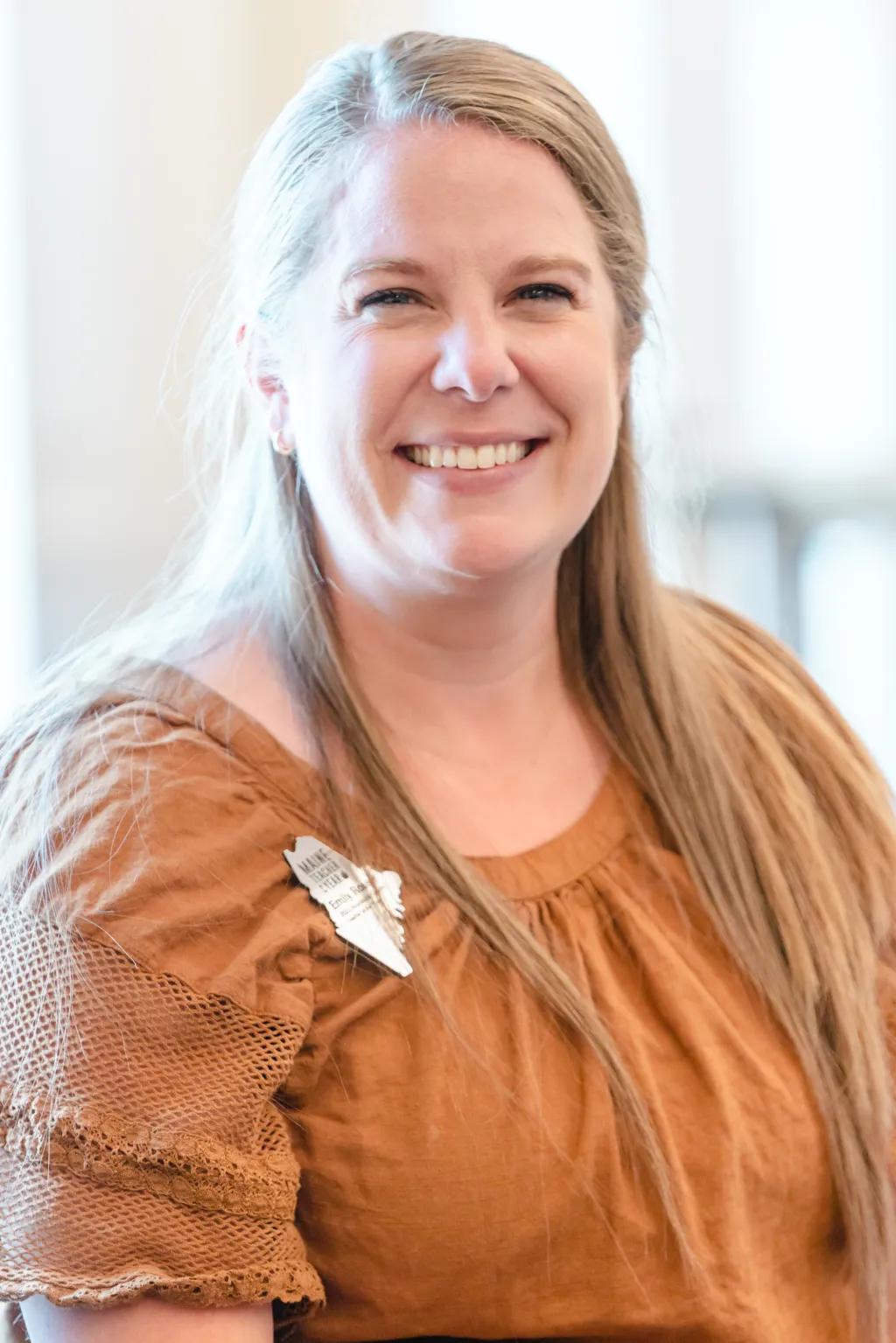
Master of Science in Education – Reading Specialist
Emily Rosser is a first-grade teacher at Caribou Elementary School in the town of the same name, just shy of the Canadian border. There, she serves as the teacher leader among first grade educators and is the K-2 math content leader for Regional School Unit (RSU) 39. She was nominated by teaching colleague and parent Meghan Russell and told MTOY she teaches because “every child needs a fresh start, a person to believe in them, and an environment that supports and pushes them to grow to be the best they can be.”
What is your teaching philosophy?
Every kid deserves a fresh start when they walk in those school doors every day. They each need something different regardless of the home they are coming from, background, prior educational experiences, learning preferences, or academic performances.
Why did you decide to teach first grade?
I love this grade level! They are so eager to learn and excited to come to school each day. They come with lots of stories. I love seeing them grow academically; the growth in first grade is unbelievable.
How did UNE support you on your path to teaching?
The opportunity UNE allows for an online master’s program was amazing. I’m a mom of three busy kiddos, and UNE offered classes in a way that made it possible for me to accomplish. I also was able to take what I was learning and actually apply it to what I was doing in the classroom. There was a lot of research to be done, and that gave me fresh ideas and knowledge I wouldn’t have received on my own.
Is there anything else you would like to share?
I appreciate the educators around me. It takes a village to raise and educate children into being the best they can be. It also takes a village to support educators. With support, inspiration, and encouragement, we can make a great impact on our children!
Cumberland: Joshua Chard, M.S.Ed. ’09
Master of Science in Education – K-6 Literacy
Joshua Chard is a second- and third-grade teacher at East End Community School (EECS) in Portland and the drama director at Deering High School. He was nominated by Principal Boyd Marley and Assistant Principal Kelly Thornhill.
Marley said of Chard, “Mr. Chard holds his students to high expectations and supports students in meeting those expectations in both a firm but nurturing way,” and that “he embodies our school mission of ‘empowering students of the world for the world.’”
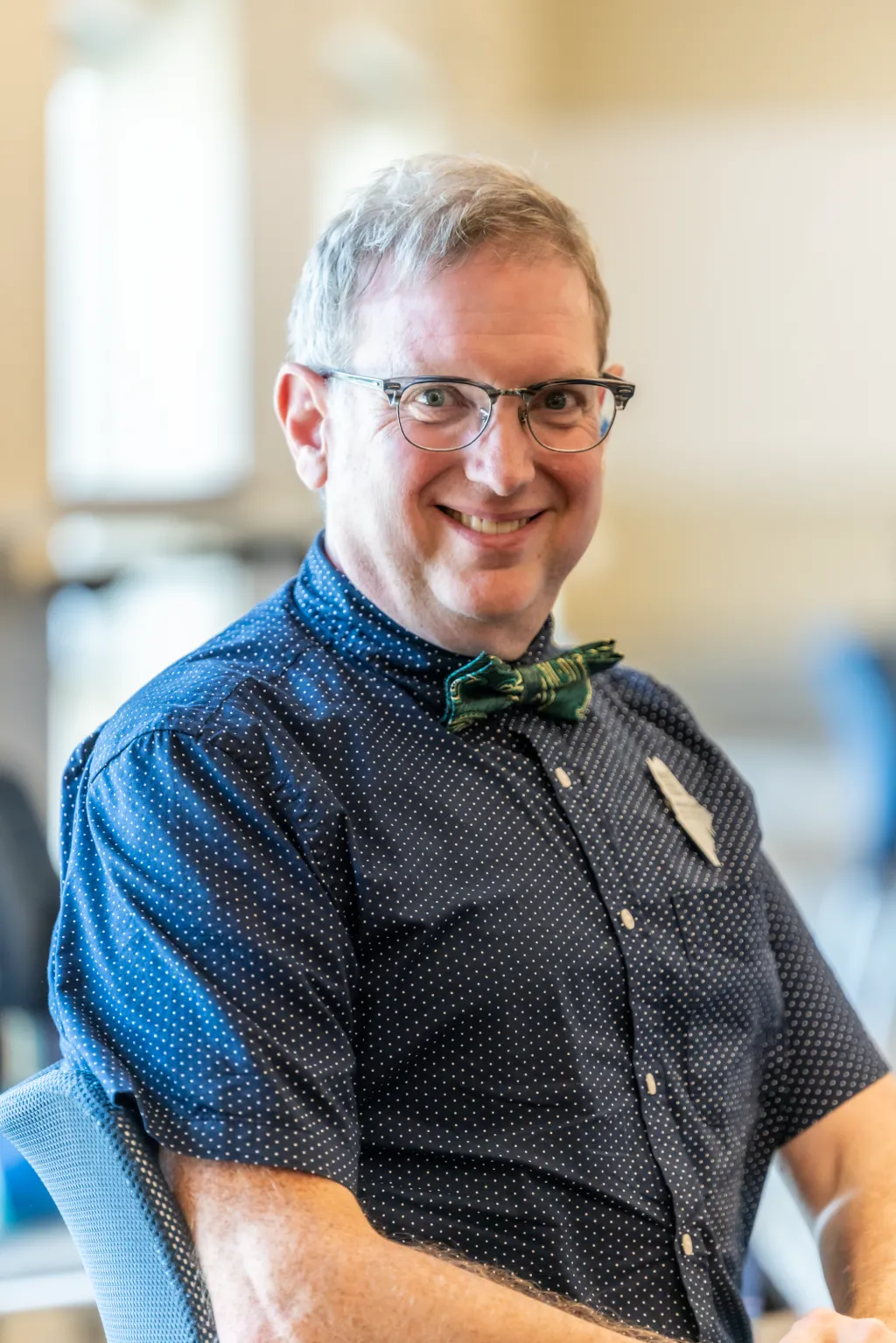
What is your teaching philosophy?
Relationships are at the heart of everything I do as an educator: relationships with my students, relationships with their families, relationships with my colleagues, and relationships with community stakeholders.
Why did you decide to teach at the elementary level?
I knew I wanted to be an elementary teacher when I was in fifth grade. My teacher, Mrs. Breau, was the kind of teacher who sees children. Being seen and being celebrated by my teacher made me want to do the same for others when I grew up.
As a teenager, Drama Club was my sanctuary. There is a place for everyone in theater, and my director, Mrs. Scheibel, made us feel like superstars. I am a successful teacher because of the amazing teachers who came before me.
How did UNE support you on your path to teaching?
Earning my M.S.Ed. from UNE set me up for career advancement. The opportunity to participate in rich discussion about pedagogy helped inform my thinking as a teacher. I was already a veteran educator when I began pursuing my degree; experienced teachers benefit and grow from pushing their thinking in a rigorous academic environment.
Is there anything else you would like to share?
I am blessed to teach at one of the most culturally diverse elementary schools north of Boston and to create theater at the most culturally diverse high school north of Boston. We are a nation of immigrants, and being entrusted with meeting the educational needs of some of the newest Mainers is an honor. I am fortunate that I get to work in a high-needs urban elementary school with some of the most dedicated educators I have ever met.
Oxford: Lacey Todd, M.S.Ed. ’09
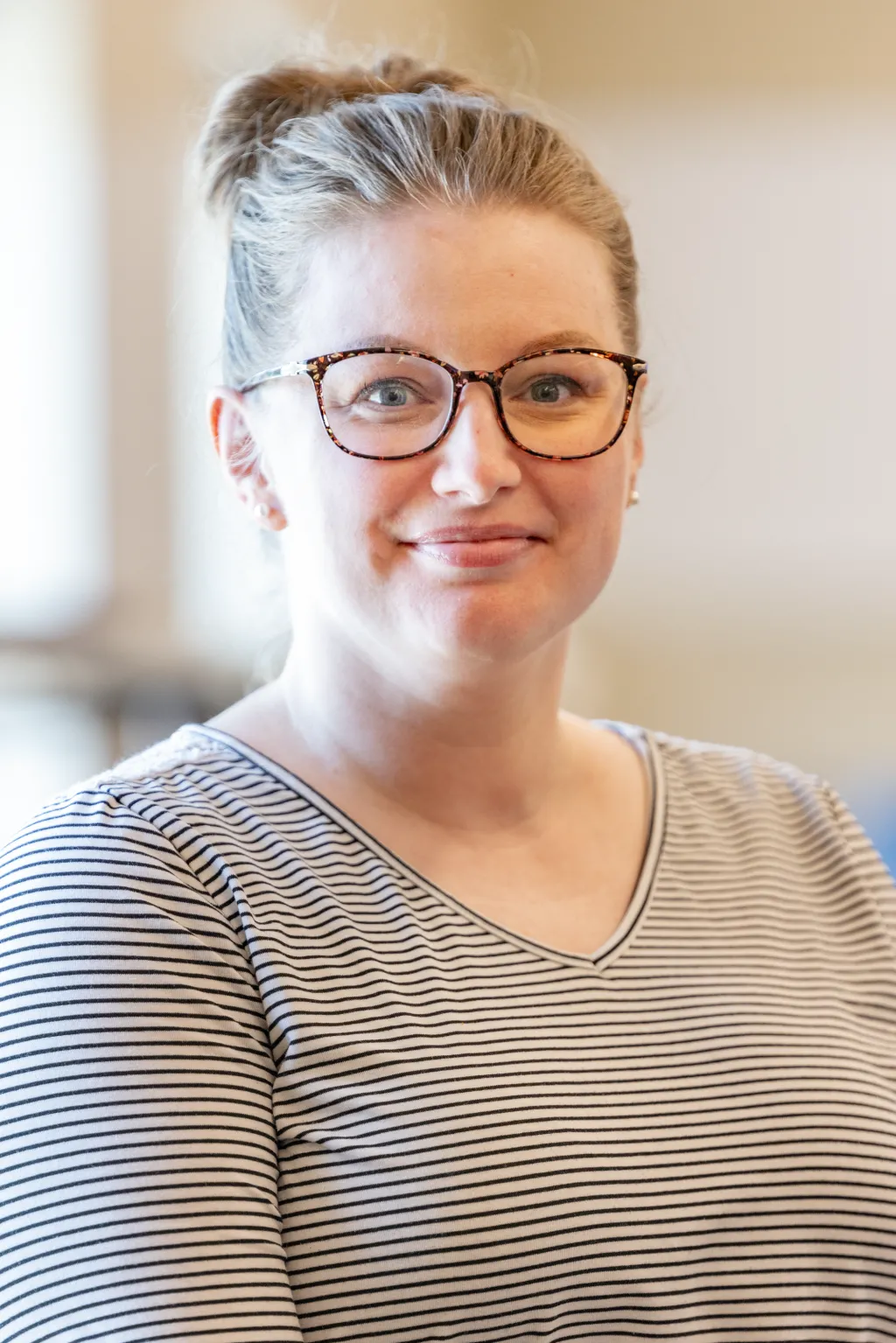
Master of Science in Education – Inclusion Education; Certificate of Advanced Graduate Study (CAGS) in K-12 Literacy (2010)
Lacey Todd is a fifth-grade science teacher at Mountain Valley Middle School in Mexico, Maine. She told MTOY she teaches “because my fourth-grade teacher, Mrs. Steele, noticed me, loved me, and believed in me. This enabled me to see, firsthand, how one connection can make a lasting difference. I want to be that difference maker.” A national board-certified teacher, Todd was nominated by colleague Jessica Curato.
What is your teaching philosophy?
I believe that success in teaching is primarily about making connections with students. I became a teacher to extend the connection that my fourth-grade teacher made with me over 30 years ago. Connections last, even when academic material is forgotten.
Why did you decide to teach fifth grade science?
I have always had an interest in science, but I love working with younger students where, unfortunately, the focus is exclusively on literacy and math. I am a firm believer that science lends authentic context and purpose to literacy and math, and that students benefit from engaging in learning experiences that are rooted in science. When our fifth grade was moved from the elementary school up to the middle school, I embraced the opportunity to teach science.
How did UNE support you on your path to teaching?
I was fortunate to complete my M.S.Ed. and CAGS while I was teaching, which enabled me to try out and refine strategies in my classroom as I was learning them.
At Mountain Valley Middle School, all students are included in science. The Inclusion Education program gave me strategies to differentiate instruction and assessment to meet the needs of all learners. It also helped me learn various models of co-teaching within the classroom, which made me more comfortable working in co-taught classes. The Literacy K-12 program gave me the skills to embed reading and writing within my science curriculum so that literacy enhances learning about science and science enhances literacy development.
Is there anything else you would like to share?
UNE's online programs enabled me to work at my own pace to earn my M.S.Ed. and CAGS while applying my learning within my own classroom setting
Piscataquis: Dawn McLaughlin, M.S.Ed. ’99
Master of Science in Education
Dawn McLaughlin teaches health and physical education to students in pre-K through sixth grade at both Milo and Brownville Elementary Schools. Her teaching is modeled after creating supportive spaces for children that are focused on healing and improving executive function. “I teach because I want to make the world a better place one student at a time,” she told MTOY.
McLaughlin was nominated by Jessica Atkinson, a teaching colleague, former student, and community member.
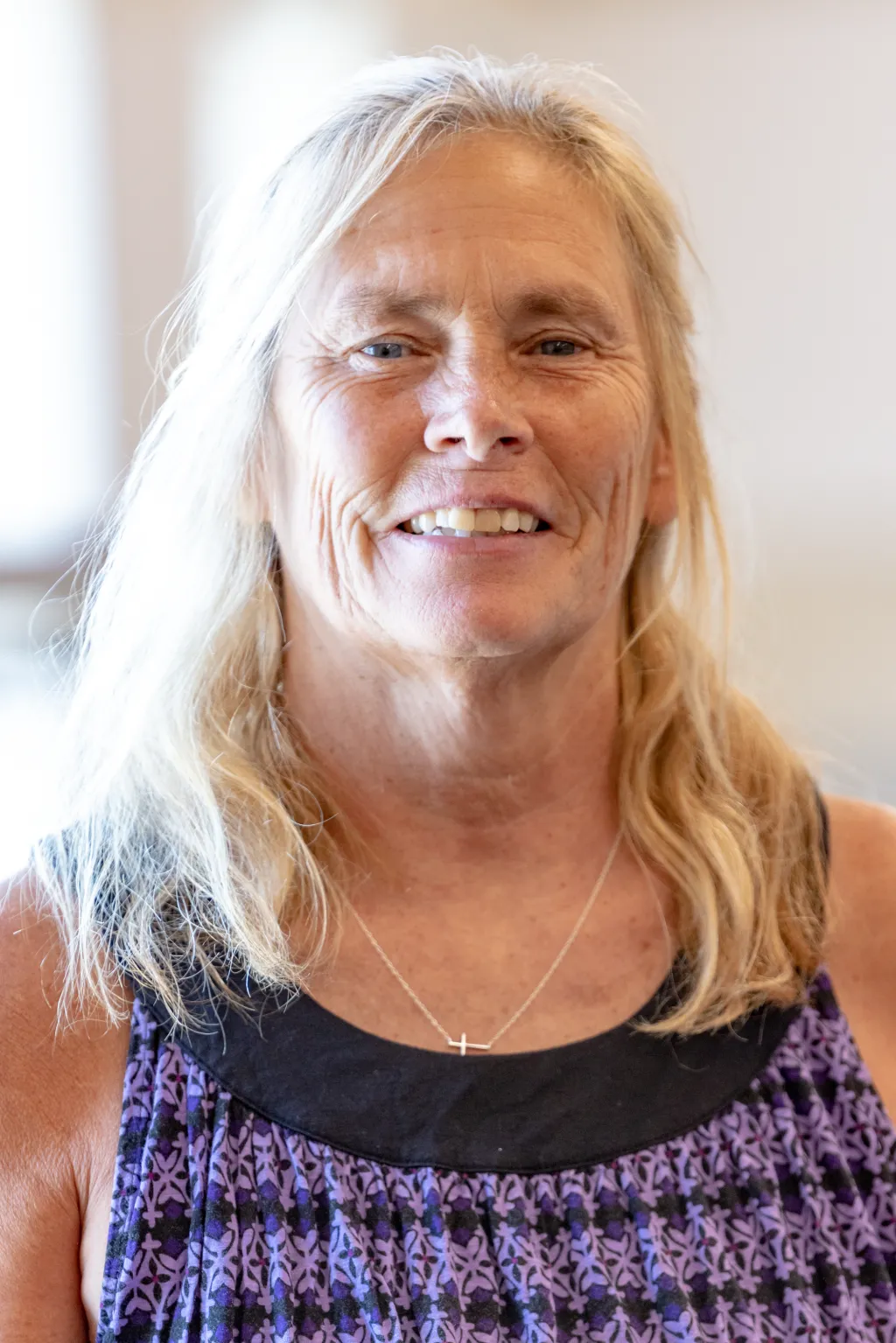
What is your teaching philosophy?
I believe that every child deserves a classroom that is healing centered. Our kiddos come to us with so many challenges that can negatively impact their learning; if, as a school, we develop a healing-centered culture, we can meet those students where they are and make connections to help them overcome those obstacles. If we can focus on the whys behind the behaviors and lend support to the children as well as their caregivers, I believe we can change the world one student at a time.
Why did you decide to teach health and physical education?
I became a physical education teacher because I love to move, and I love to be outside. My love for these two things sent me in the direction of a career where I could go to work every day and say, “I love this job.”
I must say, I nailed it. I get to move every day, and I am outside even in inclement weather. Finally, early in my career, I set a goal to make good memories for kids, and through my physical education and health program, I get to do that every day.
How did UNE support you on your path to teaching?
I must say that my master’s program at UNE was a very enriching experience, and I immediately applied the teaching strategies that I learned during the course of my master’s program. I still use the whip-around and the pair-sharing strategies almost daily. I also learned so many new strategies around gender equity and cultural differences. I can honestly say the program made me a better teacher.
Is there anything else you would like to share?
I am blessed to teach in a community that has learned to do more and more with less and less. I have watched the teachers at Milo and Brownville Elementary do whatever it takes, day after day, to make the lives of their students better and, at the same time, provide an amazing education.
I learned most of what makes me a County Teacher of the Year from my colleagues. I watch the way my fellow teachers interact with students on a daily basis, and I gain so many outstanding classroom management tips. I have learned so much over my 37 years of teaching from those around me, I truly believe that there is no better place to teach than Milo and Brownville Elementary.
Somerset: Katie Flannery, M.S.Ed. ’11
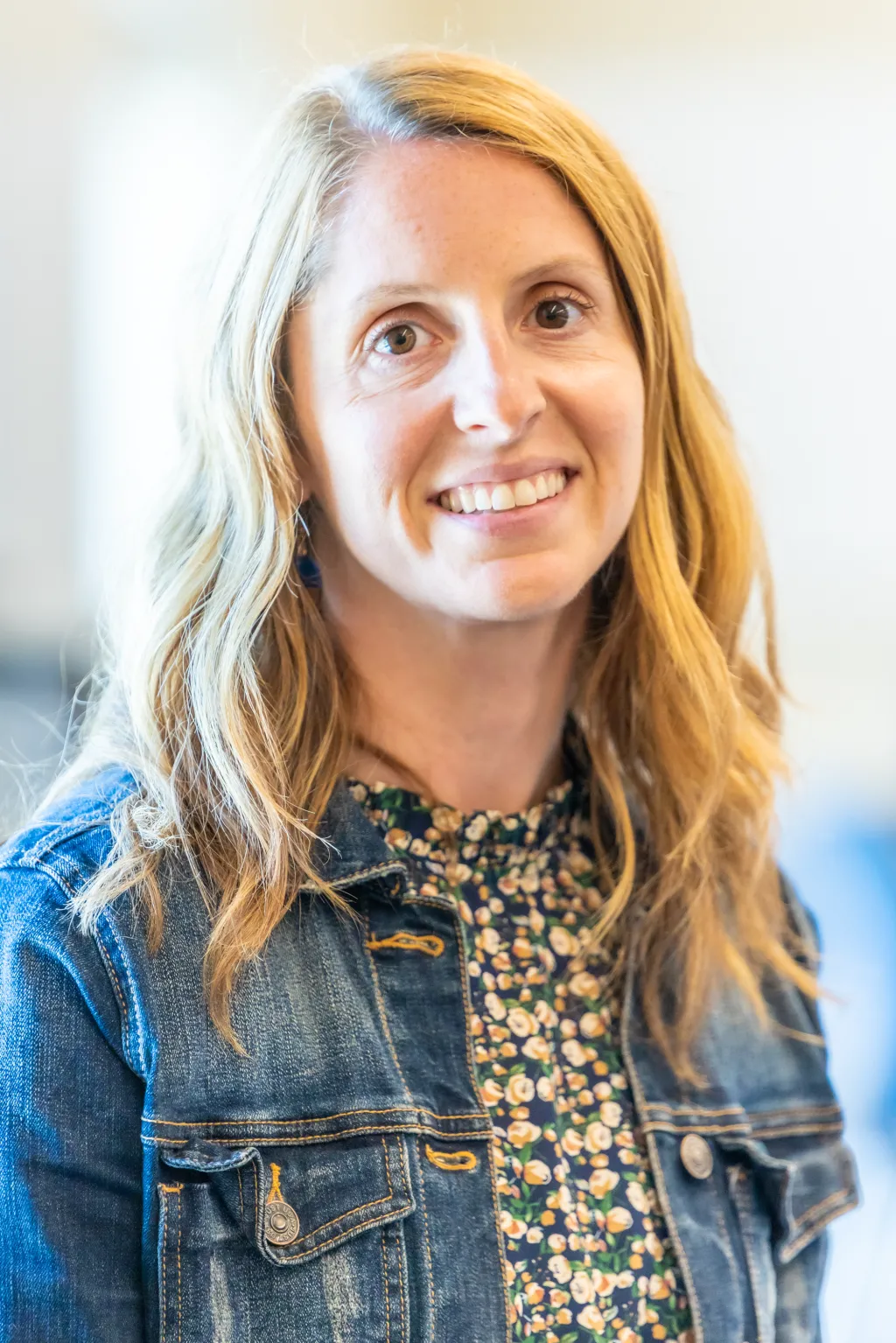
Master of Science in Education – Inclusion Education; CAGS in K-12 Literacy (2014) and Reading Specialist (2016)
Katie Flannery taught third grade at Bloomfield Elementary School in Skowhegan and will begin a new role as a Reading Specialist at RSU 54 this fall. She was nominated by Deirdre Mitchel, a district literacy specialist. Flannery told MTOY she teaches “to be an advocate for students and families, to share the kindness and empathy that has been shared with me, and to show students that learning can be challenging and fun all at the same time.”
What is your teaching philosophy?
Kids are full of hope and potential. All it takes is one person to believe in them and show them that they are unstoppable. I hope that be that one person for my students.
Why did you decide to teach third grade?
I absolutely love teaching third graders. They are at a unique age where they can use what they use learn from reading to better understand the world around them and be problem solvers. They are open-minded and can debate issues respectfully. My students give me hope for the future. I was recently hired by my district as a reading specialist, and I am excited to use the knowledge I gained at UNE in this new role in the fall.
How did UNE support you on your path to teaching?
The courses I took at UNE helped me to gain a better understanding of how to serve different populations of learners at my school. Taking the Special Education Law class made me a better advocate for my students and their families. The Reading and Coaching classes helped me to be a better instructional teacher and colleague. I am excited to start my new role as Reading Specialist and put this knowledge to use in a new way.
Is there anything else you would like to share?
Taking classes at UNE gave me the confidence and knowledge to level up my teaching skill. I found pace of the classes fit well with my busy schedule. If I was looking to take more classes, UNE would be my first choice.